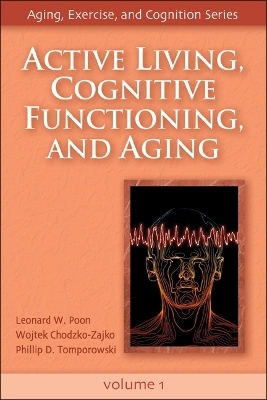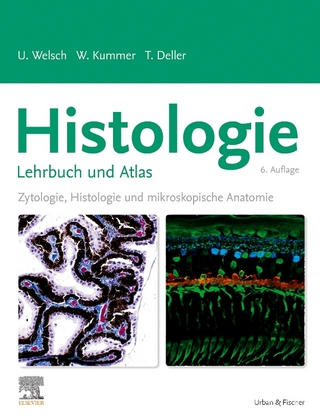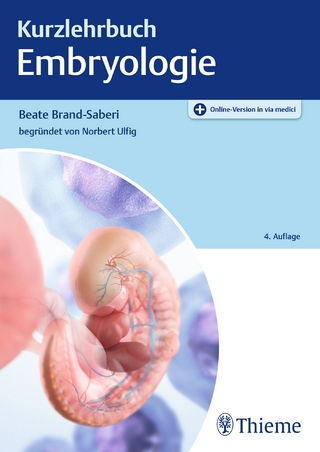
Active Living, Cognitive Functioning, and Aging
Human Kinetics (Verlag)
978-0-7360-5785-1 (ISBN)
- Titel ist leider vergriffen;
keine Neuauflage - Artikel merken
Although many factors contribute to a healthy body and mind, an active lifestyle is considered to be one of the most important. Those who want to keep abreast of what is currently known about the effects of exercise and an active lifestyle on cognitive functioning in old age will benefit from this foundational text.
Active Living, Cognitive Functioning, and Aging is the first volume in Human Kinetics' Aging, Exercise, and Cognition series. In this volume, internationally known experts present state-of-the-art findings related to exercise and cognitive functioning of older adults. The book's review of research on pertinent issues in measurement and physiological mechanisms will update your knowledge while challenging your current thinking.
Using a multidisciplinary approach, Active Living, Cognitive Functioning, and Aging keeps you on the cutting edge of these areas:
-The status of research evidence
-Future directions of research
-Advances in measurement
-Key issues related to aging, physical activity, cognition, and putative mechanisms
-The potential of intervention programs that positively influence cognition
-Implications for public policy making for healthier older adults
The book's 11 chapters are organized into three areas. The first three chapters focus on cognitive mechanisms of the relationships between exercise and cognition. Chapters 4 and 5 explore potential neurobiological and physiological mechanisms that intervene between exercise and cognition. Chapters 6 through 11 provide advances in measurement designs and tools that could increase measurement sensitivity in research on exercise, fitness, and cognition.
Active Living, Cognitive Functioning, and Aging will raise consciousness among researchers, practitioners, policy makers, and the public about the beneficial effects of an active lifestyle on the mind during the aging process.
Each volume in Human Kinetics' Aging, Exercise, and Cognition series presents advanced research and key issues for understanding and researching the links between exercise, aging, and cognition. All three volumes are essential references for cognitive gerontologists, medical and health science researchers, exercise science researchers and professionals, and public health administrators interested in scientific evidence demonstrating the beneficial effects of regular physical activity on cognitive functioning and general health during aging.
Leonard W. Poon, PhD, is professor of psychology, director of the Gerontology Center, and chair of the faculty of gerontology at the University of Georgia. A fellow of the American Psychological Association, American Psychological Society, Association of Gerontology in Higher Education, and the Gerontology Society of America, Dr. Poon was a Fulbright senior research scholar in Sweden and a senior visiting research scientist to Japan. Among his research awards are the NIA Special Research Award, VA Medical Research Service Achievement Award, North American Leader in Psychogeriatrics, and Southern Gerontological Society Academic Gerontologist Award. His primary research areas are in normal and pathological changes of memory processes in aging, clinical assessment of memory (including assessment of early stages of dementia of the Alzheimer's typed), and survival characteristics and adaptation of centenarians. He is currently directing a nine-university, NIA-funded program studying the genetic basis of longevity, relationships between the brain and behavior in Alzheimer's disease, and daily functioning capacities of the oldest old. Wojtek Chodzko-Zajko, PhD, serves as both department head and professor of kinesiology and community health at the University of Illinois at Urbana-Champaign. He served on the World Health Organization Scientific Advisory Committee, which issued guidelines for physical activity in older adults. He chairs the Active Aging Partnership, a national coalition in the area of healthy aging linking the American College of Sports Medicine, the National Institute of Aging, the Centers for Disease Control and Prevention, the American Geriatrics Society, the National Council on the Aging, the American Association of Retired Persons, and the Robert Wood Johnson Foundation Since 2002, Dr. Chodzko-Zajko has served as principal investigator of the National Blueprint Project, a coalition of more than 50 national organizations with a joint commitment to promoting independent, active aging in the 50+ population. He was founding editor of the Journal of Aging and Physical Activity and president of the International Society for Aging and Physical Activity. He is frequently invited to speak about healthful aging at national and international meetings. Dr. Chodzko-Zajko also has appeared often on television and radio, including the NBC “Today Show,” National Public Radio, and CNN. Phillip D. Tomporowski, PhD, associate professor at the University of Georgia, specializes in the study of the effects of physical activity on mental functioning in children, individuals diagnosed as mentally retarded, and older adults. He served on the editorial board of the Journal of Aging and Physical Activity. Dr. Tomporowski is the author of Psychology of Skill: A Life-Span Approach (2003). His many publications include a review of papers describing the relation between exercise and cognitive functioning and empirical research addressing the relation between physical activity and aging.
Foreword
Contributors
Preface
Chapter 1. National Blueprint: Increasing Physical Activity Among Adults 50 and Older: Implications for Future Physical Activity and Cognitive Functioning Research
Wojtek Chodzko-Zajko
Chapter 2. Physical Activity, Cognition, and Aging: A Review of Reviews
Phillip D. Tomporowski
Chapter 3. Commonalities in Aging- and Fitness-Related Impact on Cognition
Leonard W. Poon and Carol Ann Harrington
Chapter 4. Effect of Exercise on Cognition in Older Adults: A Reexamination of Proposed Mechanisms
Robert E. Dustman and Andrea White
Chapter 5. Current Findings in Neurobiological Systems' Response to Exercise
Philip V. Holmes
Chapter 6. Measurement of Physical Activity
Rod K. Dishman
Chapter 7. Assessing Physical Performance in Older Adults
M. Elaine Cress
Chapter 8. Sleep, Mood, and Chronic Pain Problems
Patrick J. O'Connor
Chapter 9. Brain Blood Flow and Methodological Considerations
Kevin McCully and Yagesh Bhambhani
Chapter 10. Neuroimaging in an Aging Population: Potential Tools in Cognition, Everyday Functioning, and Exercise Research
L. Stephen Miller
Chapter 11. Issues of Aging, Physical Activity, Cognition, and Putative Mechanisms for a Relationship: A Discussion
Waneen W. Spirduso
References
Index
About the Editors
| Reihe/Serie | Aging, Exercise, and Cognition |
|---|---|
| Zusatzinfo | 6 |
| Verlagsort | Champaign, IL |
| Sprache | englisch |
| Maße | 152 x 229 mm |
| Gewicht | 567 g |
| Themenwelt | Geisteswissenschaften ► Psychologie ► Verhaltenstherapie |
| Studium ► 1. Studienabschnitt (Vorklinik) ► Histologie / Embryologie | |
| Sozialwissenschaften ► Soziologie | |
| ISBN-10 | 0-7360-5785-4 / 0736057854 |
| ISBN-13 | 978-0-7360-5785-1 / 9780736057851 |
| Zustand | Neuware |
| Haben Sie eine Frage zum Produkt? |
aus dem Bereich


